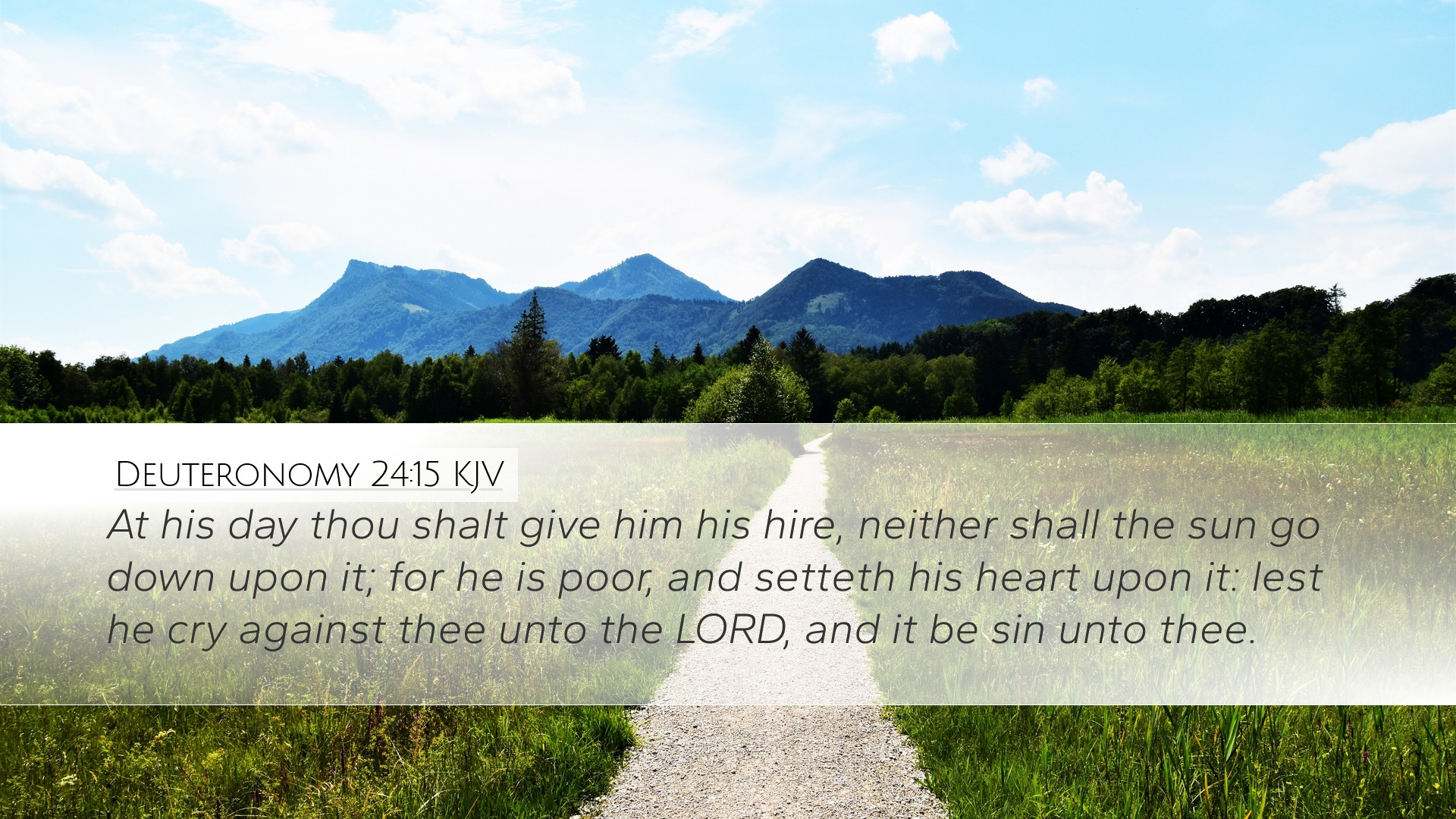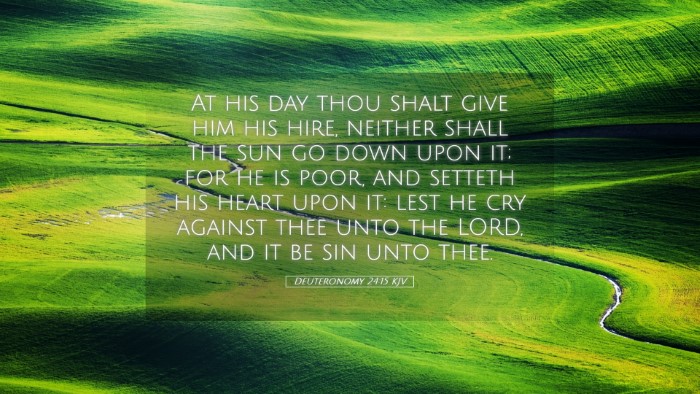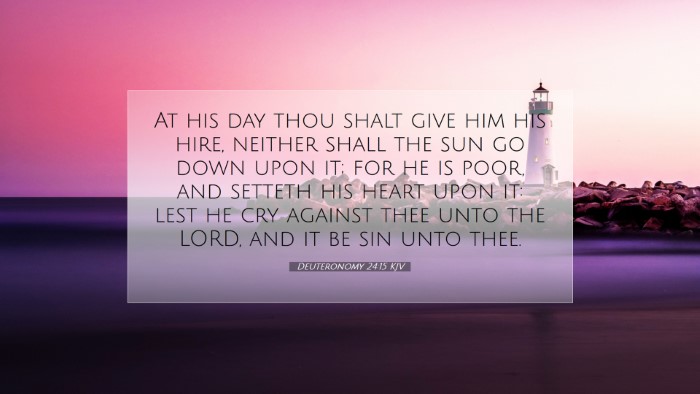Commentary on Deuteronomy 24:15
Verse: "You shall give him his wages on the same day, before the sun sets, for he is poor and counts on it; lest he cry against you to the Lord, and it be sin in you." (Deuteronomy 24:15, ESV)
Introduction
The verse at hand serves as part of a broader legal framework in Deuteronomy that aims to regulate social justice and ethical treatment of the poor and working class in Israelite society. This insight is crucial for pastors, students, theologians, and Bible scholars for understanding both the historical context and the moral imperatives outlined in the Mosaic Law.
Historical Context
Deuteronomy is a book attributed to Moses, presenting the law to the Israelites as they prepared to enter the Promised Land. This particular passage addresses issues of labor, wages, and the treatment of the economically disadvantaged. In the ancient Near Eastern context, laborers were often vulnerable to exploitation, and this legal provision seeks to safeguard their rights.
Matthew Henry's Perspective
Matthew Henry emphasizes the moral obligation of employers to ensure fair treatment of laborers. He suggests that wages are not merely a contractual obligation but also reflect the employer’s integrity and compassion. Henry highlights the urgency of timely payment as respect for the laborer's dignity and rights:
- Timeliness: Payment must be made on the day the work is completed, ensuring that the laborer has the means to provide for their immediate needs.
- Moral Responsibility: Failing to pay on time is portrayed as not only a social injustice but also a transgression against God's law, which could provoke divine disapproval.
Albert Barnes' Insights
Albert Barnes offers a detailed examination of the implications of this verse. He notes that the ethical treatment outlined is indicative of a broader theological principle—that God cares for the vulnerable:
- Divine Monitor: The text suggests that God hears the cries of the oppressed. Ignoring the plight of the laborer not only harms the individual but also incurs sin before God.
- Social Justice: Barnes posits that this law establishes the foundation for a just society, where the powerful are reminded of their obligations to the weak.
Adam Clarke's Commentary
Adam Clarke delves into the sociocultural ramifications of the law. He asserts that the regulation reflects God's concern for social equity and the establishment of a moral and just community:
- Economic Justice: Clarke articulates that prompt payment is essential for survival, particularly for the poor, who often rely on daily wages for sustenance.
- Prohibition Against Oppression: He argues that God’s directive is a preventive measure against systemic injustices that can arise when wealth disparity increases.
Theological Implications
Examining Deuteronomy 24:15 helps clarify significant theological themes in the Bible, such as God's justice, mercy, and the responsibility of humanity:
- God's Concern for Justice: This verse underscores the biblical principle of justice, revealing God's character as one who advocates for the marginalized.
- Mercy and Compassion: The call to prompt payment can be viewed as a broader reflection of God's merciful nature, encouraging believers to practice compassion and care for their neighbors.
- Community Ethics: The law is designed to cultivate a community where ethical obligations are recognized and fulfilled, promoting harmony and mutual respect among community members.
Practical Applications
For contemporary readers, this verse carries profound implications for ethical leadership, economic practices, and community engagement:
- For Employers: Timeliness in fulfilling contractual agreements is not merely an obligation; it is a part of ethical stewardship.
- For Society: The principles found in this verse should encourage systemic changes that advocate for fair labor practices and protection of workers’ rights.
- For Individuals: Each person is called to reflect God's compassion in their dealings, advocating for the oppressed and ensuring that justice prevails in all transactions.
Conclusion
Deuteronomy 24:15 is more than a mere legal statute; it captures the essence of God's concern for social justice and the moral obligations incumbent on every individual within a community. Pastors, students, scholars, and laypersons alike are invited to reflect deeply on these teachings, ensuring they are embodied in practical real-world applications that promote justice, mercy, and community welfare.


